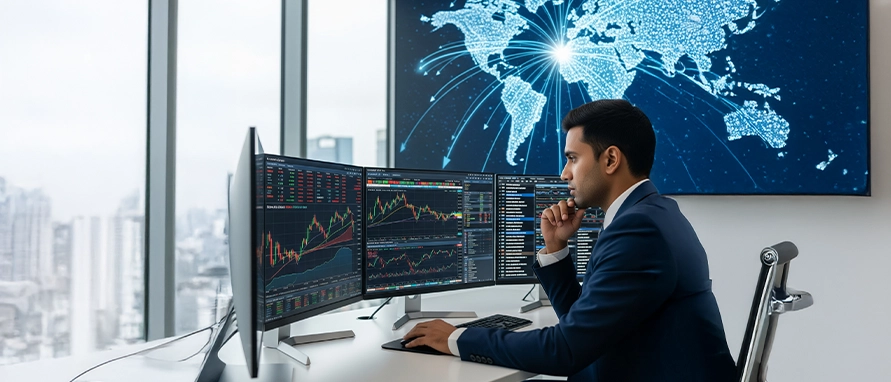Various categories of global developments can create ripples in domestic markets:
Geopolitical Conflicts
Global tensions, especially in oil-producing regions, can disrupt supply chains and drive up crude oil prices. Since India imports a large portion of its oil, such price spikes raise the import bill and fuel inflation. For example, conflicts in the Middle East often trigger volatility in Indian energy and aviation stocks.
Monetary Policy Decisions Abroad
Actions by central banks like the U.S. Federal Reserve directly influence foreign investor behaviour in India. Interest rate hikes in the U.S. can lead to capital outflows from Indian markets as investors chase higher yields abroad, often resulting in short-term market corrections.
Global Economic Slowdowns
When major economies experience a slowdown, demand for Indian exports drops, impacting sectors like IT services, pharmaceuticals, and manufacturing. Sluggish global trade can lead to lower earnings for export-focused companies and subdued market sentiment.
Commodity Price Fluctuations
Significant changes in the prices of commodities such as oil, metals, or agricultural products affect input costs for Indian companies. Rising prices tend to pressure margins and push inflation higher, while falling prices can benefit industries reliant on imports.
Global Financial Crises
Events such as the 2008 financial meltdown or the 2020 COVID-19 crash demonstrate how quickly global fear can spill into Indian markets. These crises often trigger sharp equity sell-offs, currency depreciation, and temporary declines in investor confidence.



.jpeg)












